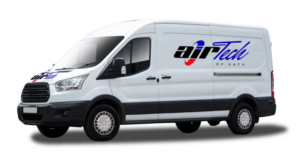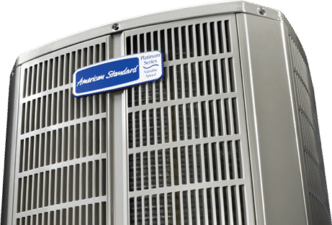In Texas, you can bet that your air conditioner runs quite frequently to keep your home cool. In the summer months when it hits triple digits, you might notice that your energy bill increases as your HVAC system works overtime.
You might think that there’s nothing you can do to save energy, but the reality is that there are tips that you can utilize right now that can help. At Air Tech of Katy, we’d like to share some advice on how you can have an energy-efficient HVAC unit running in your home!
Cooling Unit Tips To Save Energy
Here are some tips you can try to reduce the energy usage of your HVAC system while keeping your home cool.
1. Regular AC Maintenance
Did you remember to put regular air conditioner maintenance checks on your schedule? Routine maintenance of your cooling system can ensure that it is working right from the beginning.
It’s a simple step, but one that makes all the difference. You won’t be able to reap the energy-saving benefits if parts of your system are not in good working order. A professional from our team at Air Tech of Katy is able to help with maintenance of your cooling system if you need it!
2. Clean Or Replace Filters
The air filters in your home can collect all kinds of dirt, including:
- Dust
- Pollen
- Pet fur
Replacing and cleaning your air filters will not only ensure the air in your home is fresh, but ensure that your AC performs well. It is recommended to change your cooling system’s filters every 1-3 months in the warmer time of year — depending on the type of filter.
3. Clean And Open Vents
If your vents are dirty or obstructed, your HVAC system isn’t going to operate as well as it should, therefore utilizing more energy to work. Ensure the airways to your vents are open and clear and remove any furniture that may be blocking its pathway.
4. Utilize Fans
You may think that since you have an air conditioning system, you can get rid of your fans. On the contrary, fans can still be helpful in saving energy if used correctly.
Ceiling and floor fans help circulate the cool air that your AC produces which puts less stress on your system. If you have a home with multiple levels, fans can help blow hot air into return vents which keeps the cold air moving.
5. Limit Indoor Cooking And Dryer Use On Hot Days
If you have ever worked in a commercial kitchen at a restaurant, you know it gets quite hot very quickly. The same concept applies to your home. If you use the oven and stove top frequently, it will heat up your house faster, making your HVAC unit work harder to keep your house cool.
Take advantage of the warm Texas weather! Consider firing up the outdoor barbecue grill or drying your clothes on a clothesline outside to reduce the usage of heat-generating appliances.
6. Check For System Upgrades
If your cooling unit is over a decade old, it might be time to get a new one or invest in an upgrade! Remember that a well-functioning unit will use less energy than one that is outdated and in need of repairs.
If you invest in an energy-star-rated unit, you can be assured of having an energy-efficient HVAC. These can save you energy and reduce your electricity bill in the long run.
HVAC Tune-Up And Maintenance
Many of these concerns can be identified and addressed with a regular cooling system tune-up or maintenance. It can be easy to leave your central air system without check-ups, but it can save you the time, energy and headache by preventing problems before they occur.
When you schedule an appointment with one of our technicians, be sure to mention that you’re looking to adjust your HVAC in a way that can save you the most energy. This can help our team make sure to give you the best tips on how to address issues and give advice on how you can utilize your cooling unit in your home moving forward!
HVAC Maintenance In The Katy Area
As you can see, many of these energy-saving tips can be applied today by yourself. If you are less experienced and would like help from a professional, a member of our team from Air Tech of Katy would be happy to help! Contact us today to schedule your next HVAC tune-up and maintenance to ensure you have an energy-efficient system that is the most energy-saving it can be!









